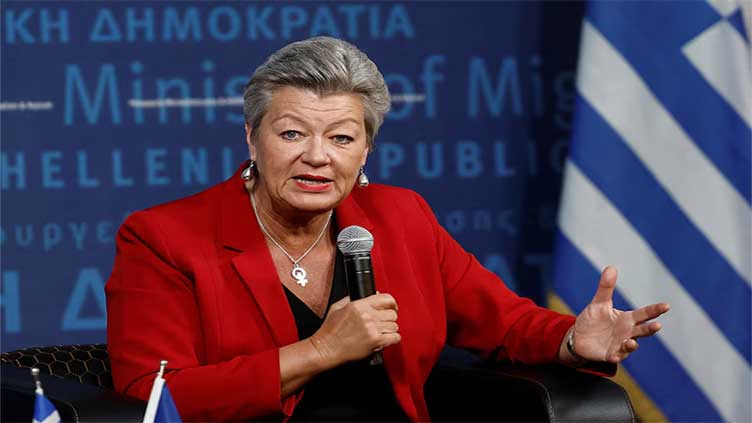EU lawmakers vote on migration system revamp ahead of bloc's election

World
Migration has been a hot-button issue in the EU since more than a million people arrived in 2015
BRUSSELS (Reuters) – European lawmakers are holding a vote on Wednesday on a revamp of the bloc's migration system that the pro-EU political centre casts as a proof of its viability against the far right ahead of the bloc's parliamentary election in June.
It promises to cut the times for security and asylum procedures, and increase returns to reduce unwanted immigration from the Middle East and Africa, a high priority on the EU's agenda.
After eight years of feuds between the bloc's 27 member states, the compromise proposals lay out a balance between the obligations of arrival countries such as Italy and help from rich destinations such as Germany.
But it has been squarely criticised by anti-immigration, eurosceptic and far-right parties for not going far enough to stop migration, while leftists and rights activists have lambasted it as a major blow to human rights.
The bloc's top migration official, Home Affairs Commissioner Ylva Johansson, expected majority of European Parliament members to back all the parts of the pact, but said she could not be sure.
Failure to get it through would be a blow for the broad political centre ahead of the continent-wide parliamentary election in two months in which the far right is expected to gain seats.
Migration has been a hot-button issue in the EU since more than a million people - mostly Syrian refugees - arrived across the Mediterranean in 2015, catching the bloc unprepared amid scenes of chaos and suffering.
More than 46,000 people have entered the EU - a wealthy bloc of some 450 million inhabitants - so far this year outside of regular border crossings, according to UN data, which also estimates 400 people perished while attempting to get in.
"We have an obligation to the citizens of Europe to show that Europe can actually work, that it can deliver," said a Dutch liberal lawmaker, Sophie in't Veld, adding she would vote for most of the package but abstain on some parts.
"But we also have to recognise that there are very justified doubts and concerns about this package and I think everything hinges on the implementation," she said naming the chief risk of "prolonged detention in very bad conditions" on EU borders.
While Johansson said the overhaul only worked as a whole, some lawmakers in the 705-strong parliament said it could still be put in place even if some parts fail to win a majority in votes starting from 1500 GMT.
Belgian NGO Vluchtelingenwerk Vlaanderen said the reform was worse than status quo because it would allow large-scale internment, including of children, and member states could buy themselves out of hosting new arrivals. It added the EU was wrong in asking foreign states to handle migrants without enough human rights safeguards.
If approved by the parliament, the revamp would be rubber-stamped this month by member states. They would then have two years to implement it, though analysts warn not to expect major changes on the ground overnight.


